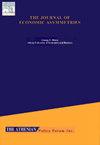Fuel price effects on motor vehicle collisions: Evidence from Greece
Q1 Economics, Econometrics and Finance
引用次数: 0
Abstract
This study examines the relationship between petrol prices and vehicle collisions using Greek data from 2012 to 2021. Generalized autoregressive conditional heteroscedasticity models are employed for daily motor vehicle collisions. Our analysis reveals that petrol prices have a significant impact on vehicle collisions. Fatal vehicle collisions decrease during relatively high petrol prices, whereas light-injury vehicle collisions increase. No significant relationship was found between severe-injury vehicle collisions and fuel prices. We also analyze daily data on motorcycle vehicle collisions and find a positive relationship between these accidents and fuel prices. When considering models with lagged fuel prices, our results indicate that in all cases, vehicle collisions decrease during periods of increasing fuel prices. These findings suggest that policies targeting motorcycling safety are particularly necessary during times of rising fuel prices.
燃油价格对机动车碰撞的影响:来自希腊的证据
本研究使用希腊2012年至2021年的数据来研究汽油价格与车辆碰撞之间的关系。采用广义自回归条件异方差模型对日常机动车碰撞进行分析。我们的分析表明,汽油价格对车辆碰撞有重大影响。在相对较高的汽油价格期间,致命的车辆碰撞减少,而轻伤车辆碰撞增加。严重伤害车辆碰撞与燃料价格之间没有显著关系。我们还分析了摩托车碰撞的日常数据,发现这些事故与燃料价格之间存在正相关关系。当考虑燃油价格滞后的模型时,我们的结果表明,在所有情况下,车辆碰撞在燃油价格上涨期间减少。这些发现表明,在燃油价格上涨时期,针对摩托车安全的政策尤为必要。
本文章由计算机程序翻译,如有差异,请以英文原文为准。
求助全文
约1分钟内获得全文
求助全文
来源期刊

Journal of Economic Asymmetries
Economics, Econometrics and Finance-Economics, Econometrics and Finance (all)
CiteScore
4.80
自引率
0.00%
发文量
42
审稿时长
50 days
 求助内容:
求助内容: 应助结果提醒方式:
应助结果提醒方式:


